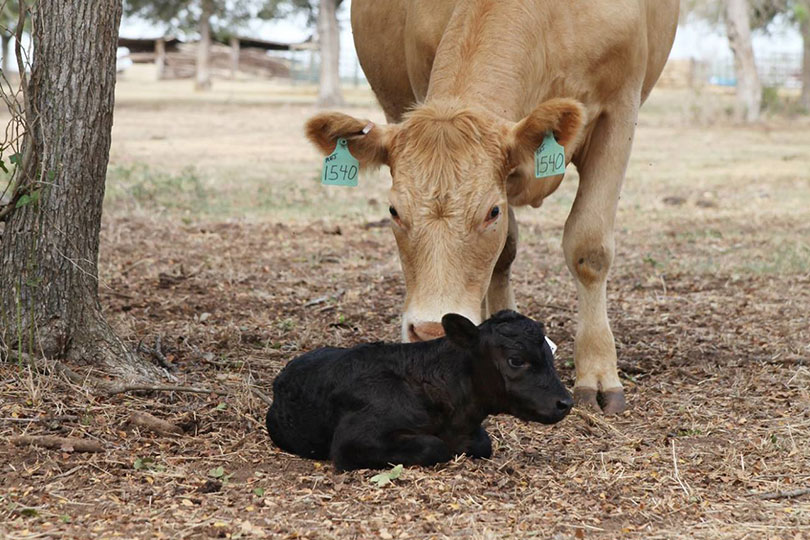By Julie Tomascik
Editor
Research shows that the time of day when ranchers feed their cows can influence when those cows will calve.
“The most important thing you can do to save more calves is to monitor cows as they are calving,” Judd said. “This allows you to make sure the calf is born without any problems, is breathing normally, responds to stimulation from the mother and gets up to nurse within a four-hour window.”
Monitoring cows is labor intensive and time-consuming, but a simple management change has been shown to result in more cows calving during the day.
“This is to feed your cows at dusk,” Judd said. “Now this does not completely prevent cows from calving at night, but a greater percentage will calve from 6 a.m. to 6 p.m. than would normally be the case.”
Feeding cows later in the day and evening will increase the number of calves born during daylight hours, studies show.
“There have been many studies on this concept, but the largest study was conducted in Iowa on 15 different farms and over 1,300 total cows,” said Dr. Bob Judd, DVM and host of Texas Vet News on the Texas Farm Bureau Radio Network. “All of the cows were fed at dusk, and 85% of the calves were born from 6 a.m. to 6 p.m.”
He noted the ideal time to start this feeding practice is about 30 days before calving.
“Even if you are in the middle of calving season, you can start feeding your cows at dusk now and can expect more cows to calve during the day in as little as a week,” Judd said.
Weather can play a role in the effectiveness of this management technique. Cattle may not come to the bunk to eat before or during storms and may be more likely to calve at night, according to research studies.


I had no idea that the time of day you feed your cow can affect when pregnant cows give birth. My neighbor owns a few cows and I wanted to know more about cows and their habits. I’ve been looking into the types of food they like and their behavior patterns.